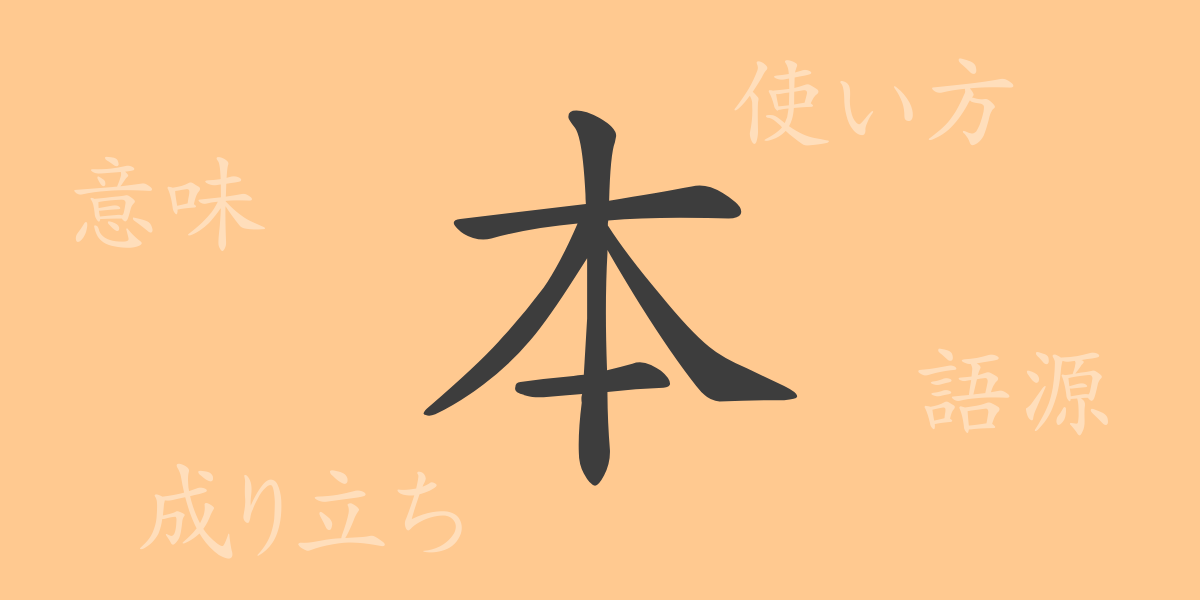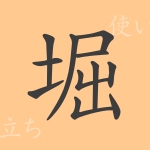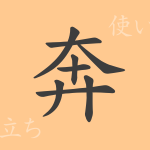In Japanese culture, the character “本” (hon) holds significance far beyond its written form. This article delves into the origins and evolution of the 常用漢字 (jōyō kanji) “本” (hon), its meanings and uses, and the idioms and phrases deeply rooted in the lives of Japanese people. We hope that readers will appreciate the rich history and cultural background embodied in the character “本” (hon).
Origins of 本 (hon)
The character “本” (hon) is believed to have originated from a pictogram representing the base of a tree. In ancient China, since the roots of a tree support the life of the plant, the term came to signify the foundation or basis of things. When kanji was introduced to Japan, “本” (hon) was read as “もと” (moto) and used to denote the origin or foundation of something. Over time, it also became established as the character representing a book.
Meanings and Uses of 本 (hon)
In modern Japanese, “本” (hon) has multiple uses. The most common use is to refer to a book or booklet, meaning a bundle of paper containing knowledge or information. Additionally, “本” (hon) is used to signify the essence or foundation of things or to denote authenticity. For example, “本音” (honne) refers to a person’s true feelings or thoughts, while “本気” (honki) indicates a serious attitude.
Reading, Stroke Count, and Radical of 本 (hon)
The character “本” (hon) is considered one of the fundamental kanji in Japan, and its readings and writing are taught in the early stages of elementary school.
- Readings: On’yomi is “ホン” (hon), and Kun’yomi is “もと” (moto)
- Stroke Count: 5 strokes
- Radical: 木部 (きへん, kihen)
Idioms, Phrases, and Proverbs Using 本 (hon) and Their Meanings
The Japanese language is rich with idioms, phrases, and proverbs that include the character “本” (hon). These contribute to the richness of daily communication and expression.
- 本気 (ほんき, honki): Signifies a serious attitude or genuine actions.
- 本音 (ほんね, honne): Refers to what a person truly thinks or feels internally.
- 本末転倒 (ほんまつてんとう, honmatsu tento): Indicates a mix-up between important and trivial matters.
- 一日の長 (いちにちのちょう, ichinichi no chou): Refers to a slight advantage in experience or knowledge in a certain field.
- 本来 (ほんらい, honrai): Means the original state or nature of something.
Summary on 本 (hon)
Through this article, we hope you have come to understand that the character “本” (hon) signifies more than just a book; it is deeply embedded in the Japanese language and culture. From its origins to its modern uses, readings, writing, and the idioms and phrases it forms, “本” (hon) plays a fundamental yet crucial role in our lives. Just as a book conveys information, each kanji character serves as a medium to transmit culture and thought.

























